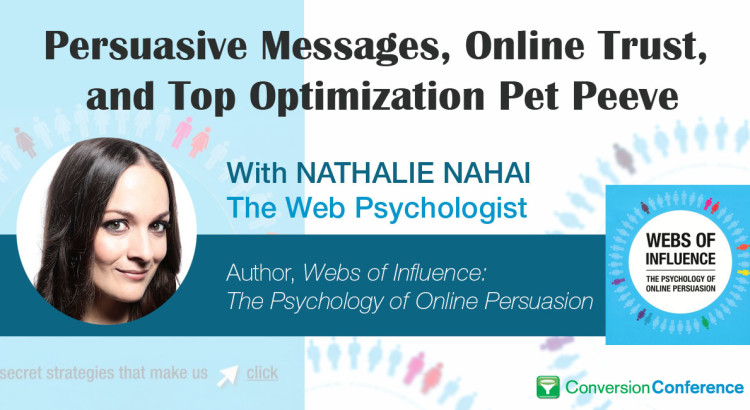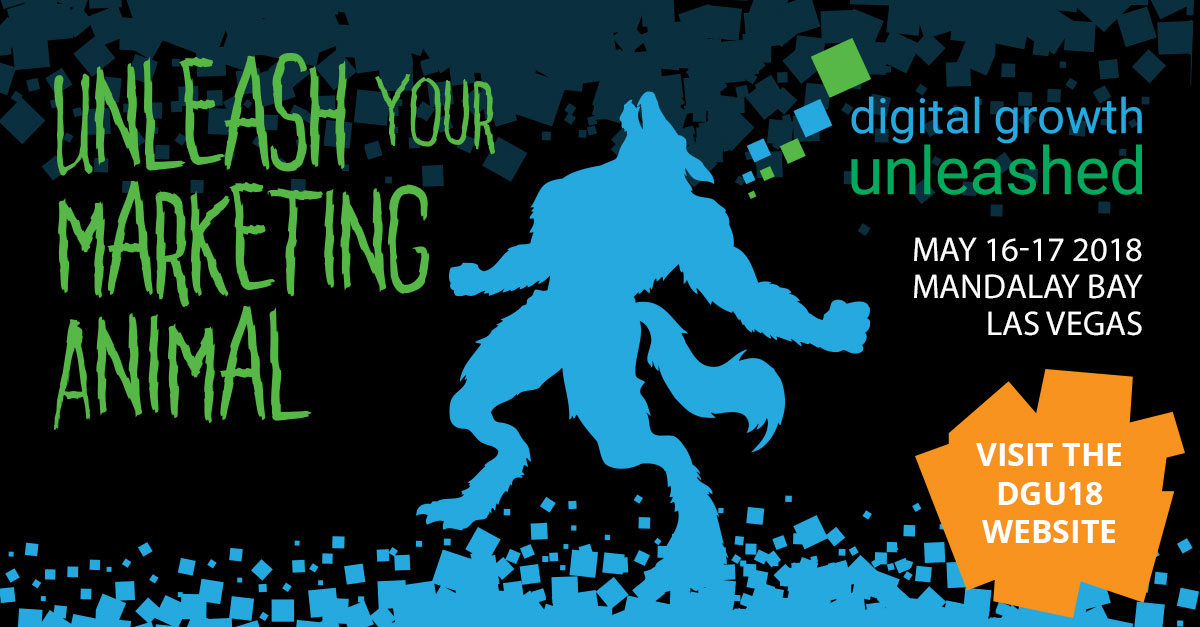We recently had the opportunity to chat with the keynote speakers for Conversion Conference Las Vegas and thought we’d ask them a few questions to give attendees a preview of the insights and ideas they’ll learn at the big event.
First up is web psychologist Nathalie Nahai, author of Webs of Influence: The Psychology of Online Persuasions. If you didn’t know it yet, Nathalie coined the term “web psychology” in 2011, defining it as “the empirical study of how our online environments influence our attitudes and behaviors”. Her background in psychology, web design and digital strategy has made her a sought-after international speaker on the subject of online behavior and a regular contributor to various publications and radio programs, such as the Marketing Week and Psychology Today. She has also worked with Fortune 500 companies, design agencies and myriad small and medium sized businesses.
Read on to learn her views on persuasive marketing messages, the challenge of online trust, what you can expect from her keynote presentation, and her top optimization pet peeve:
ConvCon: What do you think are the trend/s which will define digital marketing this year and how can digital marketers best take advantage of it?
Nathalie: I think the most interesting and potentially powerful trend that will define digital marketing this year is psychological keyword optimisation. Research has shown that marketing messages can be made more persuasive by using words specific to certain personality traits, so for instance if you’re a high end tech manufacturer and you’re targeting an audience that is high in “openness to experience,” they’ll be much more likely to respond to messages that include words such as intelligence, creative, innovation and imagination.
As we dig deeper into certain aspects of psychological research, not only will we be able to construct campaigns that resonate with our audience at a deeper level, but we’ll also be able to understand their needs and motivations more clearly so that we can better serve them.
ConvCon: What’s the biggest challenge for digital marketers today? Can you give us a short advice on how marketers can solve or overcome this problem?
Nathalie: The biggest challenge I’m seeing emerge is around trust, privacy and hyper personalisation. As data mining practices improve and the application of web psychology is becoming more commonplace, we’re starting to see push back from customers who are being targeted and/or tested on without their explicit consent. Whether on social platforms (such as Facebook’s emotional contagion experiment), e-commerce sites (with personalised recommendations) or re-targeting ads (the kind that follow you around even after you’ve bought that one-time product), people are becoming increasingly wary of the data trail they’re leaving behind, and the companies that are competing for it.
The key issue here is around trust. Healthy relationships, whether between friends, lovers, or a business and its customers, have evolved to operate within a dance of reciprocity. For a relationship to thrive, the parties involved must contribute and take into account each others’ needs without taking advantage of one another. As a marketer, if are to conquer this challenge you’re going to have to lead the way and put your customers’ needs (including their need for privacy) at the centre of what you do. Only then will you be able to earn their trust, their loyalty and their business.
ConvCon: What can attendees look forward to during your keynote?
Nathalie: I’ll be talking about the secret psychology of persuasive copy. Attendees will learn how to apply targeted psychological techniques to write personality-specific content, craft killer headlines, and leverage trigger words to engage people to read on.
ConvCon: What’s your top pet peeve when you’re optimizing a website and why?
Nathalie: My top pet peeve is when the client isn’t able to answer the most fundamental question: “What’s your goal as a business?” You’d be surprised how many clients lose sight of this and are then stumped when their website seems scattered and conflicting in its messaging and design.

 717 798 3495
717 798 3495



